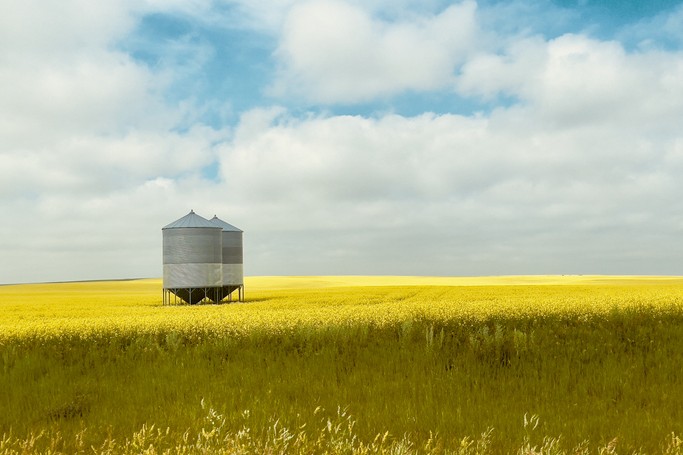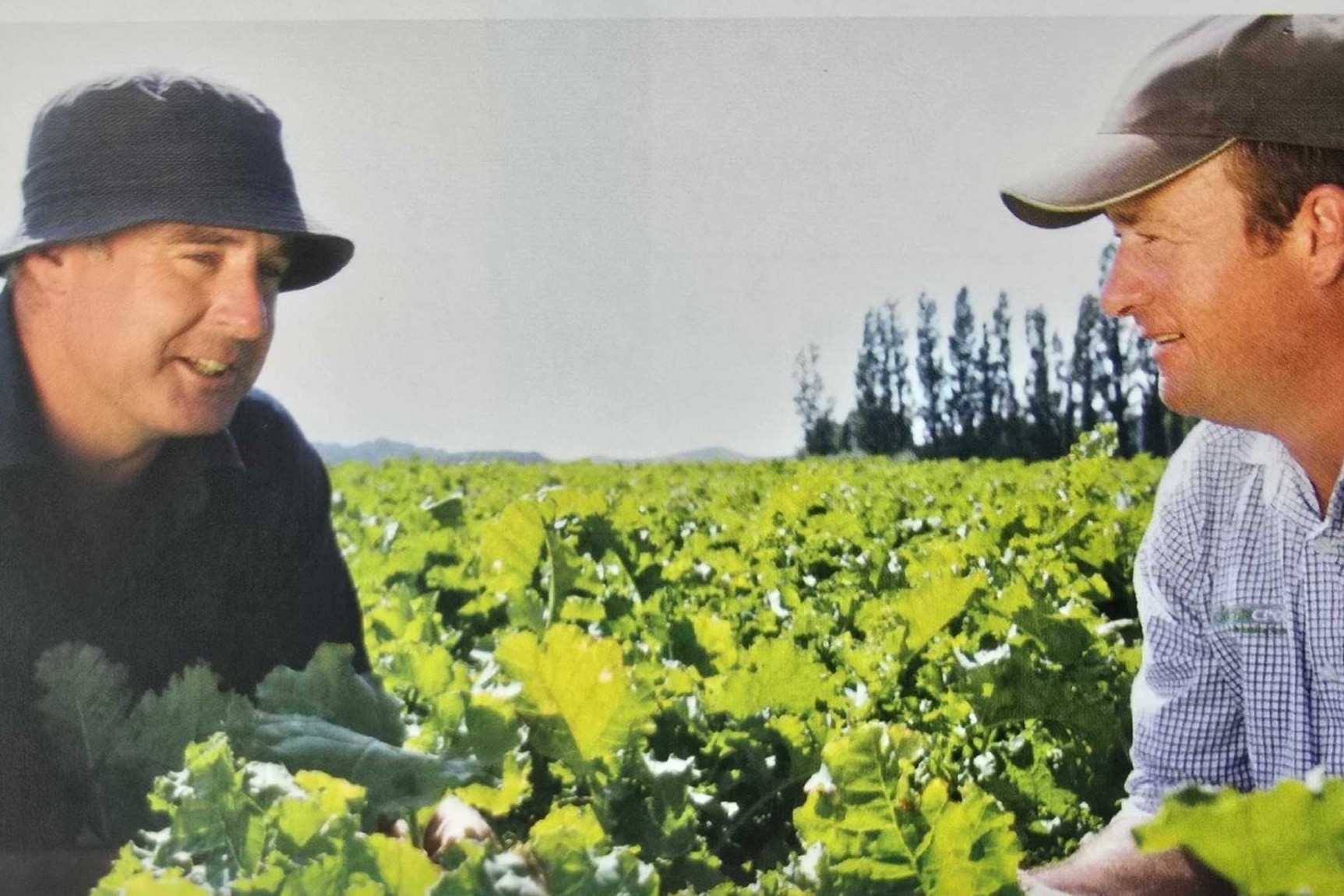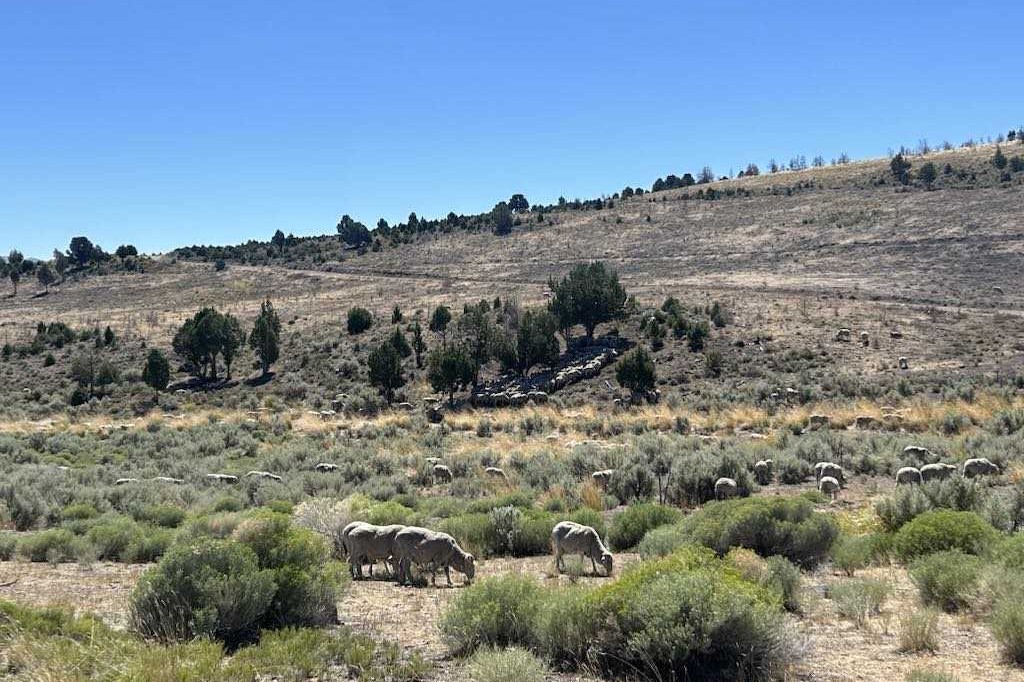Farm workers were once the mainstay of country rugby teams But many now have other commitments. John Cosgrove takes a look at the Otago’s Strath Taieri team.
The carpark is full of dusty utes with packs of dogs growling menacingly from cages on the decks.
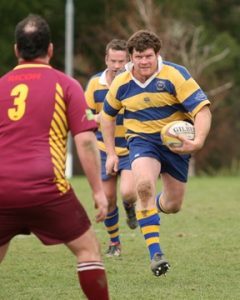
Inside the changing rooms the players arrive in dribs and drabs.
There isn’t a cell phone to be seen and the conversations aren’t about who posted what on Facebook. It is about drenches and bailage, crutching and shearing – this is a farming rugby team.
For the men of the Strath Taieri Rugby Football Club senior team it is the last practice session of the year.
Hard-working farmers by day, passionate rugby players each Thursday night at practice and every winter weekend, these men work hard and play even harder.
Hailing from the many sheep, cattle and dairy farms scattered around the middle reaches of the Taieri River, some are second-generation players at this more-than-100-year-old club.
‘Rugby was almost a religion in small towns then but not so anymore as everyone has something else to do on the weekends.’
A player from the 2000-2009 seniors, co-coach Paul Roy says it is always a struggle finding enough players each year for the team.
Age, seasonal commitments on the farm and a transient working population make it difficult to know just who will show up.
But this year Strath Taieri senior team have been lucky and have fielded a full team with reserves each game in the Otago Rugby Unions senior competition.
“In the past we’ve often left Middlemarch with only 14 players aboard and rung ahead to see if anyone else can come along and play for us, it could be someone’s son at uni or a brother boarding at John McGlashan or Otago Boys. Somehow, we have always managed to play,” Paul says.
“Rugby was almost a religion in small towns then but not so anymore as everyone has something else to do on the weekends.”
Family and farming commitments play a big part and compete for leisure time against rugby.
The youngest player (16) isn’t training on Thursday night because he has to play for his school team on Saturday so will miss the club’s final game against Alhambra-Union.
Many of the team work on nearby farms in the Middlemarch area, or up at the huge Rocklands station. A couple even travel the 78km from Mosgiel or Dunedin each Thursday night.
Paul runs 8000 ewes on his family’s 1600-hectare farm at Moonlight Valley in nearby Macraes and started playing rugby at the club when he left school at 17, eventually playing until he was 33.
Others like skipper Jim Stevenson run huge farms. He runs the Strathview station at nearby Hindon.
A couple of his workers play alongside him as he helps guide the team forward in his first year as captain.
“It is a great way to socialise on a Saturday afternoon,” added Paul.
Jim agrees, and he’s been playing since he was five.
“We have a great mix off all involved in the farming industry within the club, from owners to staff to rural suppliers.”
After an hour training under lights at the Middlemarch domain the temperature dips below 1C and the team returns to the warm changing rooms where Paul and several other team supporters have the customary BBQ sizzling, churning out hot sausages and chops.
“We always put on a feed for them as many have just finished on the farm and came here without dinner.”
Bevan Dowling started playing back in 1976 and later ran out alongside his two sons who were also playing for the senior team at the time.
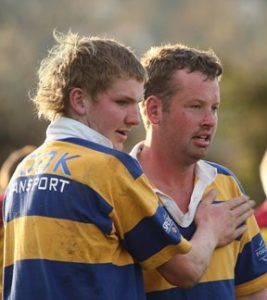
congratulate each other after the final whistle blows.
“The club was a reason for the young blokes working on the farms to socialise, it was a reason to get out, somewhere to group together as mates as there wasn’t too many other sports to play in the small towns.” Bevan says.
But he admits rugby is no longer the drawcard it was once.
“A lot of young farmers with families have come into the region, they have family and farming commitments that impacts on their time more,” Bevan says.
Saturday rolls around and the team fronts up at Opoho in Dunedin for their final match of the season against Alhambra.
They have lost more matches than they have won this year, so their low score means they will miss the play-offs for the senior trophy but that doesn’t seem to faze the team as they follow Jim out on the field in front of enthusiastic supporters.
“We lost seven to eight of our senior players this year, they retired so we basically started with a whole new team this year.
Alhumbra-Union eventually triumph. It’s not the finish Strath Taieri hoped for but as they troop off the field there is talk about next season or is that someone looking for a hand moving a mob down the road?

